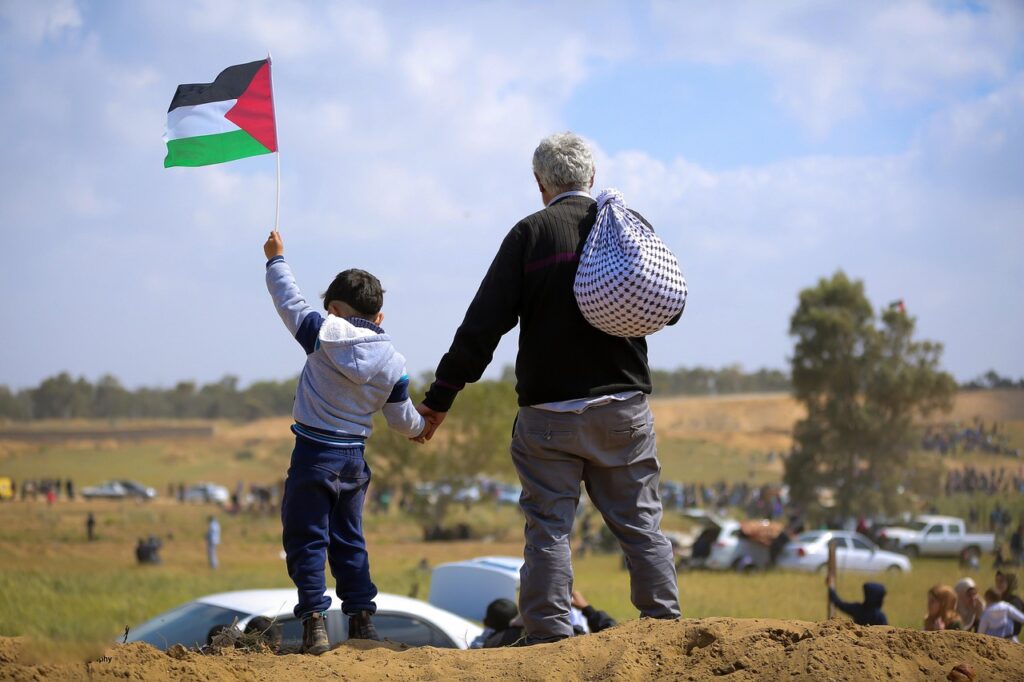The European Union has approved a €1.6 billion aid package aimed at supporting the Palestinian Authority (PA), rebuilding Gaza, and strengthening governance across the West Bank and East Jerusalem. Spread over two years, the funding is designed to address urgent humanitarian needs and promote long-term economic stability in the region.
According to EU officials, the financial support will focus on improving services, boosting private sector activity, and building key infrastructure. More than one-third of the total package will go directly to the Palestinian Authority to stabilize its budget and enable it to continue operating core services.
Strategic Allocation to Key Sectors
Out of the €1.6 billion, over €576 million will be dedicated to sectoral development, including healthcare, education, and public infrastructure. Another €82 million will support the United Nations Relief and Works Agency (UNRWA) to provide essential aid to Palestinian refugees.
The plan also includes up to €400 million in low-interest loans for private businesses, aiming to fuel job creation and entrepreneurial growth in Gaza and the West Bank. EU leaders stress that private sector development is crucial for long-term peace and economic independence.
EU Calls for PA Reform and Gaza Engagement
Dubravka Šuica, the European Commission’s Vice President for Democracy and Demography, described the aid as a critical step toward institutional reform and regional stability. After meeting with newly appointed Palestinian Prime Minister Mohammad Mustafa in Luxembourg, she stated:
“Our funding aims to strengthen governance and create a stable financial foundation for the Palestinian people. A competent and reformed Palestinian Authority is vital to Gaza’s future.”
Šuica emphasized that Gaza’s reconstruction should involve a revitalized PA that can provide services, uphold law and order, and work with international partners.
Support for Peace and Economic Stability
The EU views the aid package not just as financial support but as part of a broader peace strategy. Officials said the funding will support employment, improve infrastructure resilience, and increase access to basic services. These elements are essential for easing tensions and preventing further humanitarian collapse.
“We believe this is a moment to act,” Šuica said. “It’s not only about rebuilding; it’s about setting the foundation for peace and stability in the region.”
The EU called on other international donors to coordinate closely and avoid fragmented efforts that may weaken institutional growth. Leaders urged the global community to act fast to prevent a worsening humanitarian and political crisis.
Renewed Violence in Gaza Raises Concerns
As the EU announced the aid package, violence escalated in Gaza. On Sunday, Israeli air forces struck Al-Ahli Hospital in Gaza City, triggering the urgent evacuation of patients. According to Gaza’s Health Ministry, at least one patient died during the evacuation due to lack of emergency care.
The Israeli military said it targeted what it described as a Hamas command center operating from inside the hospital. In a statement, the army claimed it had taken steps to minimize civilian harm, though the strike still prompted sharp international criticism.
Hamas condemned the airstrike and called it a “new war crime”. The group said the attack further damaged an already overwhelmed healthcare system.
Background: Conflict and Ongoing Humanitarian Crisis
The war in Gaza began on October 7, 2023, when Hamas launched a deadly cross-border assault on southern Israel. The attack killed 1,200 people, and 251 hostages were taken. Most were eventually released, but many families remain without answers.
In response, Israel began a broad military campaign across Gaza. According to the Hamas-run Health Ministry, more than 50,000 Palestinians have died in the conflict. However, the ministry does not distinguish between civilian and militant deaths in its reports.
The EU’s aid package is expected to roll out in phases starting later this year. Experts say success will depend on transparency, effective delivery, and cooperation between Palestinian authorities and international donors.
The European Commission reaffirmed its commitment to working with trusted partners and monitoring results closely. This aid could shape not only the recovery of Gaza but also the future of EU-Palestinian relations.
